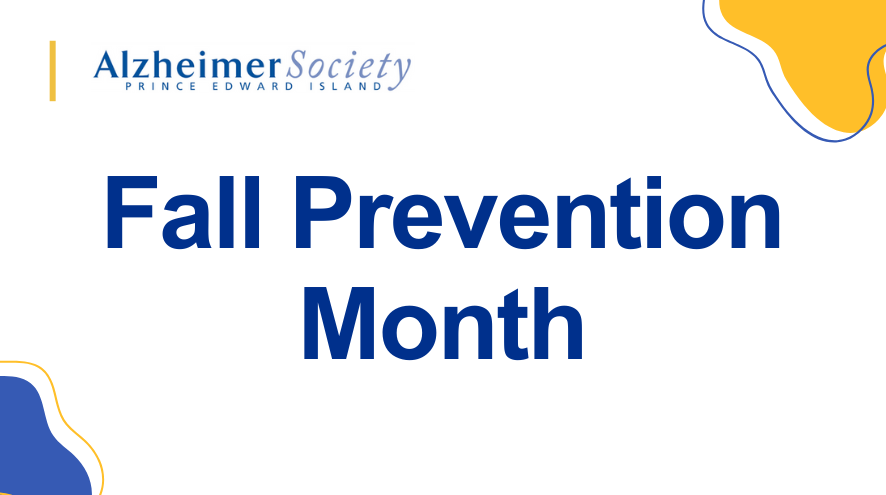Fall Prevention Month
November is Fall Prevention Month. People living with dementia are 4-5x more likely to fall than those without cognitive impairment. Learn more about how you can reduce your risk for falls.

Learn how you can reduce your risk for falls!
Older adults often develop the fear of falling, which can lead to avoiding activity and reducing mobility. This can be detrimental as it can cause muscle weakness from decreased mobility, further increasing fall risk, as well as affecting mental health from social isolation and decreased confidence.
Both falls and the fear of falling can significantly impact independence and quality of life.
Dementia Increases Risk of Falling
People living with dementia may experience changes that increase their risk of falling.
- Insight and judgement
- Changes in sensory perception (sight, sound, touch)
- Communication (ability to understand and express needs)
- Coordination, balance, rigidity, muscle stiffness
- Interpretation of their environment (depth, light intensity, colour, pattern, temperature)
- Short-term memory loss
- Changes in motivation and initiation of tasks (leading to sedentary lifestyle)
7 Fall Prevention Strategies
- Regular medication reviews and treatment of medical conditions
- Effective communication between the person living with dementia and their caregiver
- Healthy lifestyle - exercise and nutrition
- Use adaptive and mobility aids, keep them nearby
- Appropriate footwear
- Modifications to home environment
- Consider purchasing a fall alert device
Learn more about these strategies and tips you can put in place today to reduce your risk of falling, read the below resource guide!

